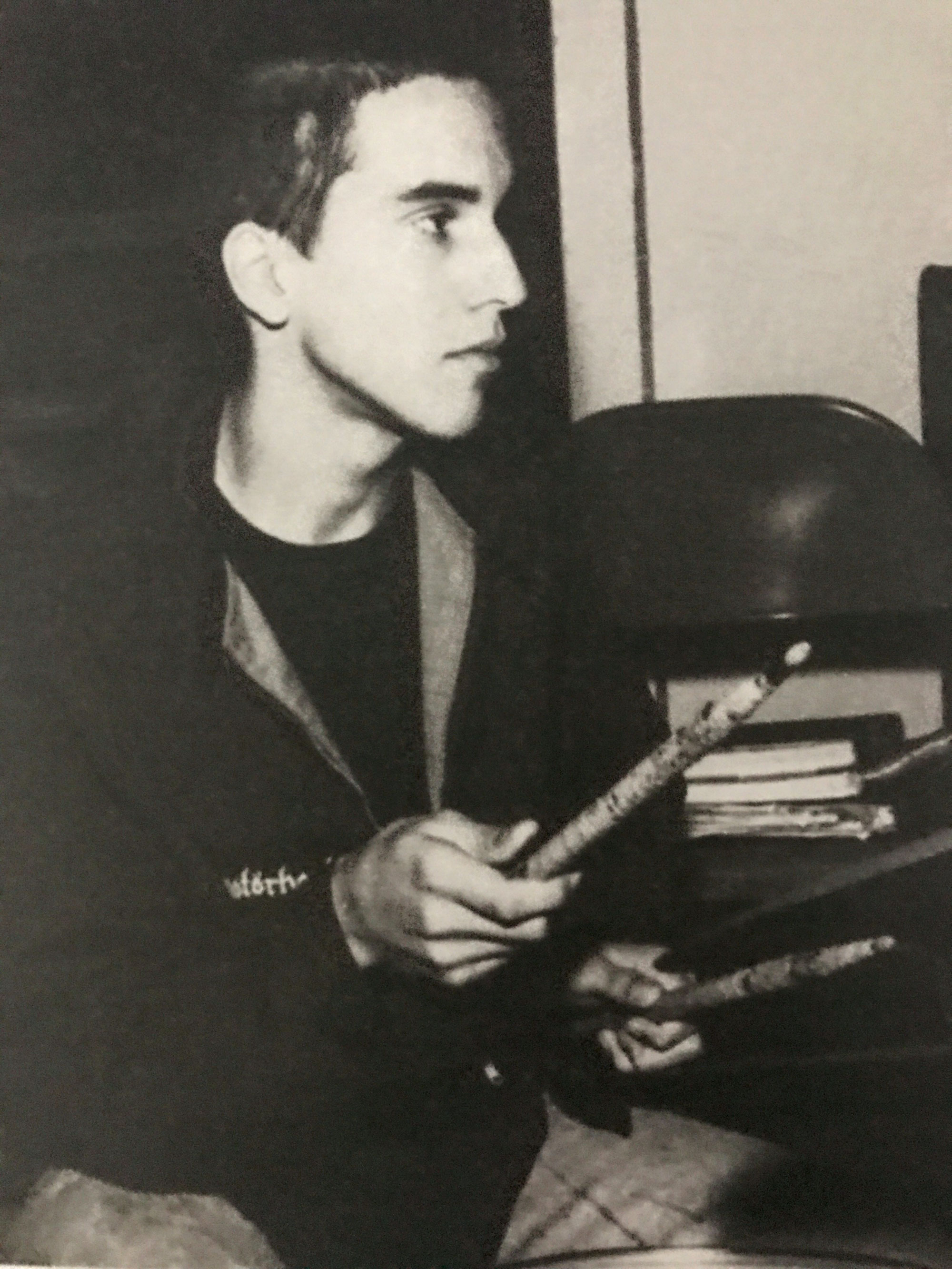How a 16-year-old J Mascis from Dinosaur Jr. got into straight-edge and learnt to play anywhere
From drumming in the school jazz band to Boston's hardcore scene of 1982

J Mascis: I breezed through school; it just wasn’t that hard for me I guess. I didn’t really do that much, but I still got pretty good grades. I only had a few friends and I didn’t really talk to many people. I was pretty good at math, though.
This photo was taken in my school’s cafeteria at a recital I was doing as part of the jazz workshop. There wasn’t a rock or punk workshop, so I was trying to make the best of it. I’d been into music since I was nine and I’d always been into the idea of playing the drums, so the jazz group was a good way to practice. I was also in the regular school band, but it wasn’t really for me; it was just all big bass drums and snare drums. At least in the jazz group I could play a proper drum kit and I got to play three or four concerts a year. I remember Murph [from Dinosaur Jr.] being our biggest fan; he really liked my drum solos.
As you can probably tell from the haircut, I was really into punk. This was taken around the time that I’d just joined Deep Wound, which was, like, my first hardcore band. I was instantly attracted to punk because it was aggressive and all the hippies in my town didn’t like it. Some of them liked the Sex Pistols a little bit, but I was more into bands like Discharge. That band really separated people out; only real punks were into Discharge.
I was lucky enough to find Lou Barlow through an ad at a local record store. Even though he and Murph were the closest like-minded people near me they still lived 45 minutes away in a town that I’d never been to before. It didn’t prove to be much of a problem. My dad would drive me out to their houses for practices and their mom or dad would drive them to my house so we could practice there.
Our first show was at a local youth centre. It was like this place we’d go to meet girls and play ping pong and they’d let us play there. We had a good time, but we didn’t have any fans or anything. Since we were the only kids that were into hardcore in our area we were playing to ourselves.
Luckily, Boston was only a few hours away, so we’d go over quite often to see shows. That often meant taking the bus, which could be scary, but it would drop you off by this art gallery that often had all ages shows. It was good when we got driving licenses – those really helped a lot.
Deep Wound’s first show in the city was with The FUs and DYS, but we also played with SSD and Jerry’s Kids a lot. It was really intimidating, but they kind of respected us. I remember this one time the biggest skinhead came up to me after we’d played and complimented me on my drumming. That was pretty cool. Boston’s scene was always tough, though, but it was also really exciting. It was pretty scary at first, especially for us; everyone was very much bigger and scarier than anyone else we’d ever met. I mean, it was violent, so I didn’t get right into the middle of it the first few times I went over, but I ended up really getting into it.
I got quite a lot out of hardcore in the end. It made me realise that you can play under any conditions. I know there are a lot of bands who freak out if the monitors are set up wrong or something like that, but that whole scene teaches you to be able to play under any conditions. Even these days I’m not that put off if something is wrong; I can usually soldier through.
As for the drums, I stuck with them all the way up to starting Dinosaur [in 1984]. I really wanted to see what it was like to write songs and I didn’t like many of the guitarists who were around at the time, so I figured that I could teach Murph the drums and I’d just handle the guitar. I do still kind of miss playing the drums, though.
Wherever you are in the world – subscribe to Loud And Quiet magazine.